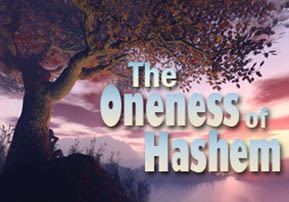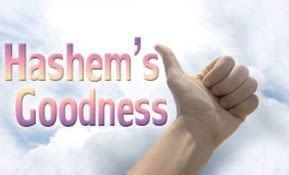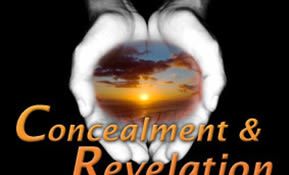
The Oneness of Hashem, Part 2
Just as we must believe in the oneness of God's existence - that God alone exists - so we must believe in the oneness of His power and will.

Opening 1, continued
Accordingly we need to know that not only does God alone exist, but also that God alone is in control. This is what is meant by the oneness of his Will: that nothing in the world could ever negate His will, for He alone is in control.
Everything we see that appears to be the opposite of His Will exists only because He allows it in accordance with His deep plan, which will continue unfolding until He brings everything to complete perfection. At present God leaves man with freedom of choice for as long as He wills. But in the end – whether through repentance or by means of punishment – everything will return to complete perfection. This is called “the oneness of Eyn Sof, blessed be He”. We are talking about the oneness of His Will [but not about Eyn Sof in His intrinsic Essence].
Thus only His Will – the Will of the Emanator, the unified Eyn Sof, blessed be His Name, – exists, because only God exists necessarily. In other words, just as we must believe in the oneness of God’s existence – that God alone exists necessarily – so we must believe in the oneness of His power and will. Just as His existence is necessary, and it cannot be otherwise – and He alone is the necessary cause, while everything else derives from Him – so too, His will and power are necessary, and it cannot be otherwise. His power alone holds sway, and all other wills exist only in accordance with this Will. Thus no other will exists except through Him.
Accordingly you cannot argue that, “While it may be true that all wills exist through Him, now that they exist, they have the power to defy His will” (God forbid). This is not true. Therefore He alone is in control and not any other will. In other words, only He is in complete control, for nothing can limit His power. This power belongs to the Supreme Will, which can truthfully be said to be the one and only Will. God wills according to His Will, and nothing can limit Him. No other will is in complete control, for all other wills are contingent upon the Supreme Will and therefore subordinate to it. Accordingly, even though they are also wills, they are not in the same category as the Supreme Will. For it cannot be denied that they derive from it, and therefore they cannot be equal to it, even though they are called “wills”. As soon as we say they derive from the Supreme Will, we imply that, unlike the Supreme Will, they are not in complete control.
Thus when we say that there is one Emanator, blessed be His Name, Who is oneness and unity in all respects, we must immediately understand that His power is also all one. Since it is impossible for two powers both to be in complete control, we must say that only one Will is in complete control, and all others are not in control. It is still legitimate to say that now, other beings exist besides the First Existent. For this does not negate the power of the First Existent. He exists and He creates, and these other beings exist only through Him. However, if we were to argue that an absolute will exists besides the Supreme Will, even while conceding that the existence of these other wills is not necessary and that they derive from the Supreme Will, this would be a denial of the absolute power of the Supreme Will. For it is impossible to say that two powers can both be in complete control. If we say that the first absolute power made another absolute power, neither the original power nor the new one are in complete control. Accordingly, when we say that the First alone has power, it is inconceivable that there is any other absolute power.
Accordingly, when we say the universe has One God, which means one absolute Ruler and Controller, it is inconceivable that there is any other absolute power. For if there were, there would no longer be one Ruler but as many as the number of independent wills that had been brought into being, and then none of them could truly be called “Ruler”. In that case it would be impossible to relate everything to one root – as we must – except in the past. We could say that at first there was one root, but now we could no longer relate everything to a single root, because we would be saying that a being exists who has the power to limit the initial Ruler. And if you object that if the initial Ruler wills it to be so, this is not called limiting the initial Ruler, the answer to this objection will be given in Opening 2.
Part 2: The entire structure is built on this foundation, namely on the oneness and unity that we have explained. The entire structure refers to all that was brought into existence by God, including both the lights [Orot, the Sefirot] and the separate realms and beings [Nimtza’im Nifradim, the worlds and creatures that derive from and are governed by the Sefirot]. The entire structure is founded on unity, in the sense that this entire structure is a single, complete entity that manifests the truth of this oneness and unity in the parts of the structure itself. The lights (Sefirot) that may be seen in it, the “bodies” (the created realms and beings) that exist in it, how they are governed and all that happens to them – all were made as parts of a single order which points to and actively reveals the underlying oneness.
To be continued.
To purchase The 138 Openings of Wisdom, click here. Rabbi Avraham Greenbaum is the director of Azamra (http://www.azamra.org/).












Tell us what you think!
Thank you for your comment!
It will be published after approval by the Editor.